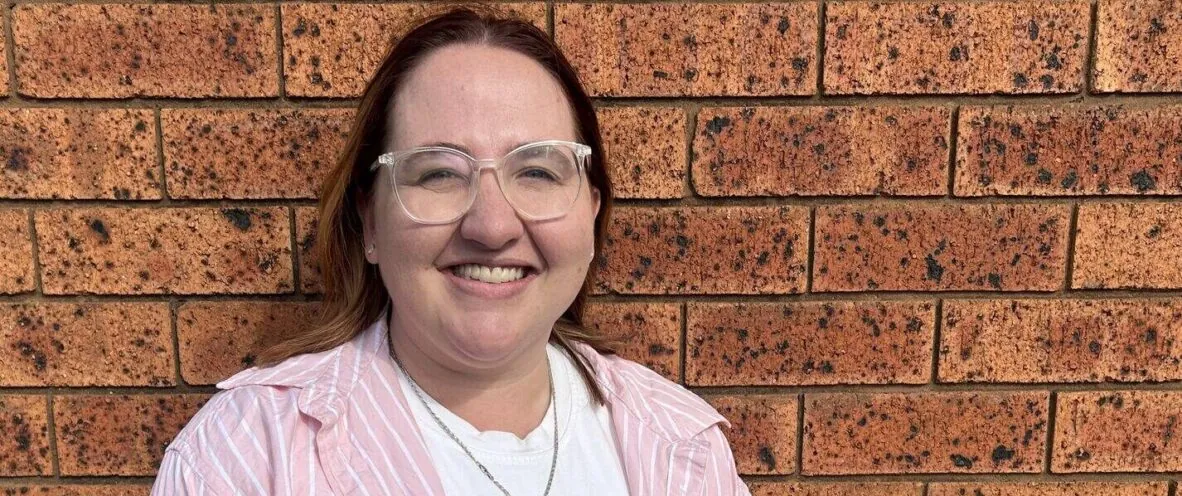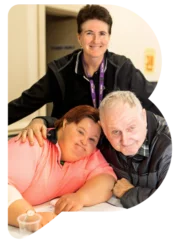Access to transport is something that many of us probably take for granted, but for vulnerable people living in rural and remote parts of NSW, access to transport is a life changer.
This is something that LiveBetter’s Transport Program Manager Alanna Gallagher understands well. We recently sat down with Alanna to learn more about her work and to understand what drives her dedication to serving our regional and remote communities and ensuring that equitable access to transport can be a reality for everyone.
A bit of background
Born and bred in the Western NSW town of Dubbo, Alanna was a good student, but not someone with a clear ‘plan’ for the future.
During her final year of school, she lived in Austria for four months as part of a student exchange, an experience which ignited in her a love of travel. To date, Alanna has explored 37 countries (and counting), but as the saying goes, ‘there’s no place like home’ and home for Alanna will always be Dubbo, where she has now bought a house and has shared custody of a four-year-old bull dog.
“I’m very lucky to be surrounded by wonderful people in Dubbo – family and friends who make regional living worthwhile. I think you don’t get that in the cities.”
After leaving school, she took a gap year job at Bunnings, where her leadership potential was quickly recognised, and it wasn’t long before they offered her the opportunity to join their Management and Leadership program.
Alanna stayed at Bunnings for eight years, gaining invaluable organisational and leadership experience. However, as time went on, she began to feel she wanted to do more for her community; she wanted to do something that made a real difference in people’s lives.
She completed a Community Services Certificate, but rather than taking a job in the community sector, when she left Bunnings, she accepted a role in logistics and spent the next two years coordinating the transportation of concrete products, ensuring they reached their destination safely and on time, from one end of the country to the other.
“It was my job to get the product across NSW and South Australia. It involved communicating, building relationships, coordinating deadlines, and working out how you can make it all work.”
She couldn’t have had better training for her next career move if she’d planned it!
“I’d been with the logistics company, working with trucks and moving concrete, for two years when I saw the LiveBetter Community Transport role advertised. I felt it was a similar concept. You’re just moving people instead of product – I went from dealing with semi-trailers and concrete to people and buses. I decided to give it a go – and six years later I’m still here.”
There is no doubt that Alanna’s leadership and logistics experience, paired with her Community Services training and a strong desire to serve her community, have left her well equipped to ensure people, who are more valuable than any commodity, can reach their destination safely and on time.
And for those people, being able to access their communities – to get to the shops, attend medical appointments, or simply catch up with friends – can be life-changing.
“I think access to transport can often be taken for granted – that’s until your car breaks down, or you’re sick, or you break an ankle and can’t drive. Then you realise how much you count on having that independence.”
On Community Transport
Connecting people with their communities is important work. Last financial year, our Community Transport team drove an average of five and half thousand kilometres a day, which is the equivalent of Sydney to Broome, with a stop for lunch in Townsville, every single day.
And it’s not only for people who are ageing or have medical conditions; it serves people as young as 12 and as old as 95. What they all have in common is the need for transport so they can get out and about, live their lives and access their communities.
“I think many of us take easy access to transport for granted, but that access to community is vital, especially for people living in regional and remote areas.
“Last year, we completed about 110,000 trips; each trip helping rural and regional people to access work, medical appointments, shopping, social events, or just to see their friends.”
On Volunteers
“We couldn’t do what we do without our volunteers. We have about 85 volunteers on our Transport team at the moment – a wonderful volunteering family – but we’re always looking for more.
“Volunteering is a great way to stay connected, make new friends, and even reconnect with old ones. I still volunteer on weekends, and at Christmas, you’ll find me driving the Community Transport bus to the Christmas Carols. I love being able to give back through volunteering.”
On LiveBetter
“Working at LiveBetter, I’ve learned not to take anything for granted – to appreciate what I have. I feel I’m very privileged – I’m very lucky to live my life the way I want.
“You see how quickly things can change, whether it be accidents, illness or ageing. So, it’s important to live the life you want to live and be positive about it. You might have bad days, but it’s not a bad life.”
Quick questions:
- What is the best thing about your work?
“I love the people – both customers and my team.”
- What is the most challenging thing about your work?
“The government. It’s the red tape. The funding.”
3. Top tip to manage work-life balance?
“Always have an international holiday booked!
“And know when to turn off and when something is outside of your control. There’s a lot you can’t control – you need to know where that line is.”
- What keeps you going, getting up and doing it all again, each day?
“The customers!
“ I will pick someone up and their joy and gratitude for simply being able to get out the door and reach their destination. It makes the ongoing battle for improved funding, improved transport options – the struggle to just keep these transport services operational – worthwhile.”
- Hopes for the future? Where do you see yourself in five years?
“I love working with people. I hope that the Community Transport Program continues to grow, and I’ll still be here doing what I’m doing, making sure that we can offer our communities the best possible transport program.
“I also hope I’ve had a few more stamps in the passport…”
- If there was one piece of advice you could give to others who are starting in the community sector, what would it be?
“Burnout is real, and it’s really important to be able to know those signs in yourself. You need to recharge your batteries. You need to have coping mechanisms in place. Pace yourself – and remember you can’t achieve everything on day one.
“Listen, learn, and understand what you can change, and what you can’t.”

